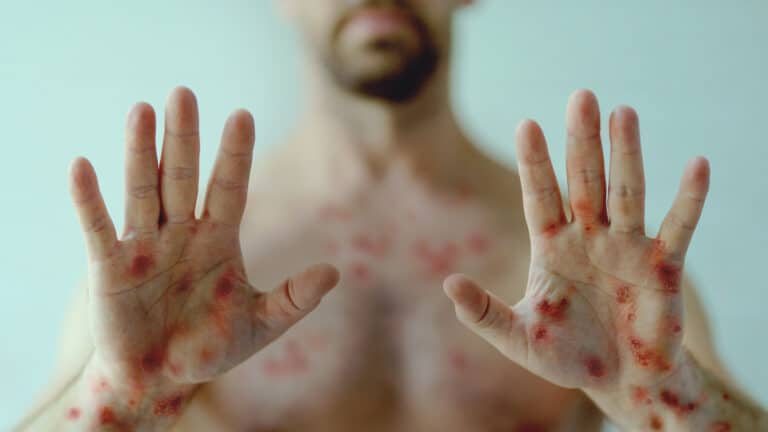If the fine print on most drug packets is read, it will almost always say not to consume alcohol while taking the medication. Of course, humans being human, this information is often forgotten. While for many medicines, the likely impact of interactions is relatively minor, some are extremely dangerous and carry potentially serious side effects if mixed. Vicodin falls into this category. Continue reading to learn more about the effects of mixing Vicodin and alcohol.
Vicodin
It is a common misconception that when the opioid endemic is mentioned, people immediately think of heroin and other illicit substances as being the causative factors. Unfortunately, this is not entirely accurate, with legal prescription drugs playing a significant role in the problem. Among these drugs, Vicodin.
What is Vicodin
Vicodin is a prescription-only medication that is a composite mixture of hydrocodone and acetaminophen. Vicodin relieves short-term moderate to severe pain; however, it also has a euphoric effect.
How Vicodin Works
As Vicodin includes hydrocodone, it is classified as an opioid. As an opioid, Vicodin is a depressant. The role of a depressant is to slow the CNS, which alters how pain signals interact with the brain, providing relief from the pain. Vicodin depresses the brain’s functioning, lowering the respiration and heart rate with the flow-on effect of sleepiness and calm.
Unfortunately, as an opioid, there is a risk of dependency when taking Vicodin.
Common Side Effects of Vicodin
Some of the common side effects of Vicodin include:
- Dizziness
- Confusion
- Drowsiness
- Nausea and vomiting
- Lightheadedness
- Constipation
Alcohol and Vicodin
Alcohol is also a depressant, meaning it has a similar effect on the CNS, so Vicodin and alcohol are a very dangerous combination when taken together. Mixing the two can have devastating, if not deadly, consequences.
As alcohol and Vicodin both depress the CNS, when mixed, they can slow the CNS to the point that the brain forgets to signal the body and tell it to breath. The net result is death.
Common Effects of Alcohol and Vicodin
The common effects of mixing alcohol and Vicodin include:
- Drowsiness
- Memory and concentration difficulties
- Impaired Judgment
- Liver disease
- Cardiac Arrest
- Stroke
Respiratory distress is another of the most common impacts of mixing alcohol and Vicodin. The symptoms of respiratory distress include:
- Labored or heavy breathing
- Discoloration of the skin around the mouth and fingers with a bluish tinge
- Excessive sweating and clammy skin
- Wheezing as a result of constricted air passageways
As the list illustrates, the effects of mixing Vicodin and alcohol are not to be taken likely, with death a possible outcome if the person does not receive treatment.
Other Consequence
As if the medical consequences of mixing these two substances were not serious enough, there are a number of other consequences that can have some equally devastating consequences.
Financial Consequences
Money and drugs are mutually exclusive and rarely seen together. It is a harsh reality that few that abuse alcohol or Vicodin have substantial amounts of money in their bank accounts. The nature of addiction is such that over time tolerance levels increase, and more of the substance is needed to achieve the same effect.
While alcohol is available over the counter, the increasing quantities being consumed cost more. On the other hand, Vicodin can be acquired with a script; however, there are costs associated with obtaining and filling a script. Many Vicodin users forgo the script and buy the pills on the black market. Although they may be affordable initially, the increasing tolerance sees the costs escalate over time.
When there is only so much money to go around, addiction tends to take over, and money meant for rent or bills gets reallocated, which is the beginning of the end. Before long, expenditure far outweighs income. The result is bills go unpaid, and creditors take action to recover the money they are owed.
Legal Consequences
Not only are there financial consequences to mixing alcohol and Vicodin, but many will also experience legal consequences. There are many ways that the law can rear its head.
Legal consequences stem from financial devastation, which can often result in a visit to the bankruptcy or insolvency courts.
The obvious consequences of addiction in a legal sense are rooted in the criminal jurisdiction. Possessing Vicodin without a prescription equates to illegal possession of narcotics, a felony in many instances. Stealing is often the only way to fuel addiction which comes with the possibility of further charges.
One of the most common legal outcomes sees those using lose their drivers licenses and face jail time over driving under the influence or without a license, especially if they are repeat offenders.
Family Breakdown
Unfortunately, many families do not survive addiction, and it is somewhat of an inevitability that family relations will be stretched to breaking point. In many ways, this is perhaps the cruelest consequence as the addict is robbed of the support needed to address the addiction.
Dependency and Addiction
Dependency is the precursor to addiction. It develops from the persistent use of a substance to the extent the user suffers withdrawals if they do not have the substance.
Addiction is when a person cannot stop using a substance despite being fully aware of the devastating consequences. The person is driven by a compulsion to continue the behavior.
Trying to overcome an addiction to alcohol and Vicodin is not easy. The person is likely to experience the following symptoms of withdrawal:
- Anxiety
- Body Aches
- Shaking
- Nausea and vomiting
- Sweating
- Muscle tension
For many, what starts as a one-off, some harmless fun, can escalate very quickly. The devastating impacts on a person’s personal and professional life, when coupled with the health consequences in all likelihood, do not even enter the equation when someone begins mixing alcohol and Vicodin. Unfortunately, they are a lot closer than they seem, and the only way to break the cycle is by undergoing a treatment and rehabilitation program.






